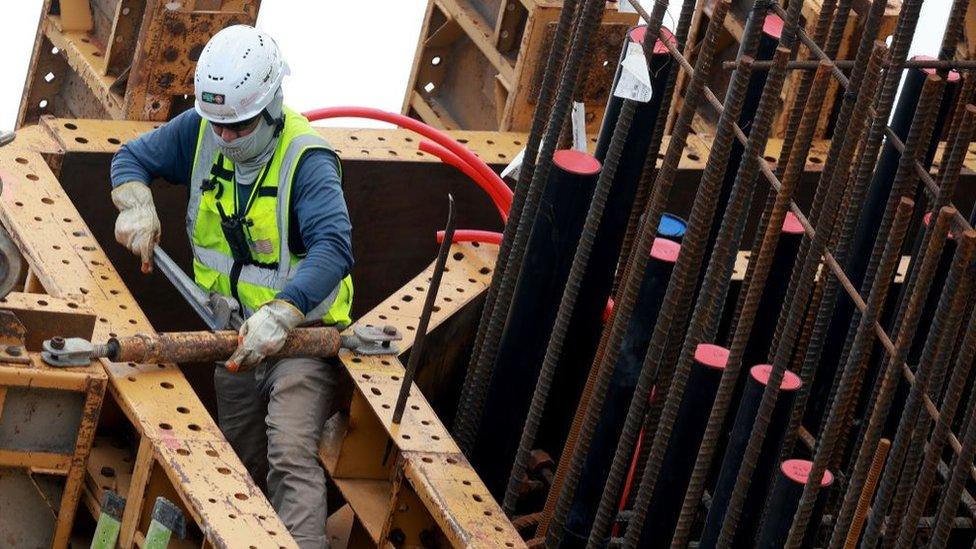US jobs boom raises doubts about rate cuts
- Published

Construction was one of the sectors adding jobs in March
Employers in the US added more than 300,000 jobs last month - the biggest gain in almost a year - as the boom in the world's largest economy continued.
The jobless rate fell to 3.8%, as most sectors, including health care, construction and the government added roles, the Labor Department said.
It marked another month of stronger-than-expected growth. Economists had forecast job gains of about 200,000.
Analysts said the strong figures could delay cuts to US interest rates.
The US central bank's key interest rate is currently at the highest level in more than two decades, in a range of 5.25%-5.5%.
Analysts have expected the Federal Reserve to start cutting rates this year to avoid a harsh slowdown triggered by high borrowing costs.
But a stronger-than-expected economy has raised doubts about how soon those cuts might come.
"The blockbuster 303,000 increase in non-farm payrolls in March supports the Fed's position that the resilience of the economy means it can take its time with rate cuts, which might now not begin until the second half of this year," said Paul Ashworth, chief economist at Capital Economics.
The Fed raised interest rates sharply in 2022 to try to slow the economy and ease the pressures that were pushing up prices at the fastest rate in decades.
Price inflation in the US has since cooled, dropping to 3.2% in February, without the big jump in unemployment some had feared would follow the rise in borrowing costs.
Economists said the labour market has been helped by government spending in areas such as high tech manufacturing and infrastructure.
An influx of more than three million immigrants last year has also added to the workforce, which analysts say may be helping to keep a lid on wages, allowing the jobs boom to proceed without reigniting inflation.
In March, the average hourly pay was up 4.1% from a year earlier, roughly in line with expectations and near a three-year low.
President Joe Biden hailed the latest figures as a "milestone in America's comeback".
But Sophie Lund-Yates, lead equity analyst at Hargreaves Lansdown, warned that the strong jobs growth could make returning the inflation rate to the Fed's 2% target difficult.
The report signals that "the economy has plenty of excess energy that may need to be tamed by continued higher rates," she said, noting that some analysts are now betting rate cuts will not come until 2025.
Higher interest rates in the US have put pressure on economies around the world, as they entice investors to America and away from other countries.
"The Federal Reserve's dashboard still has some warning lights to deal with before signalling the all-clear for cutting," she said.
Related topics
- Published20 March 2024
